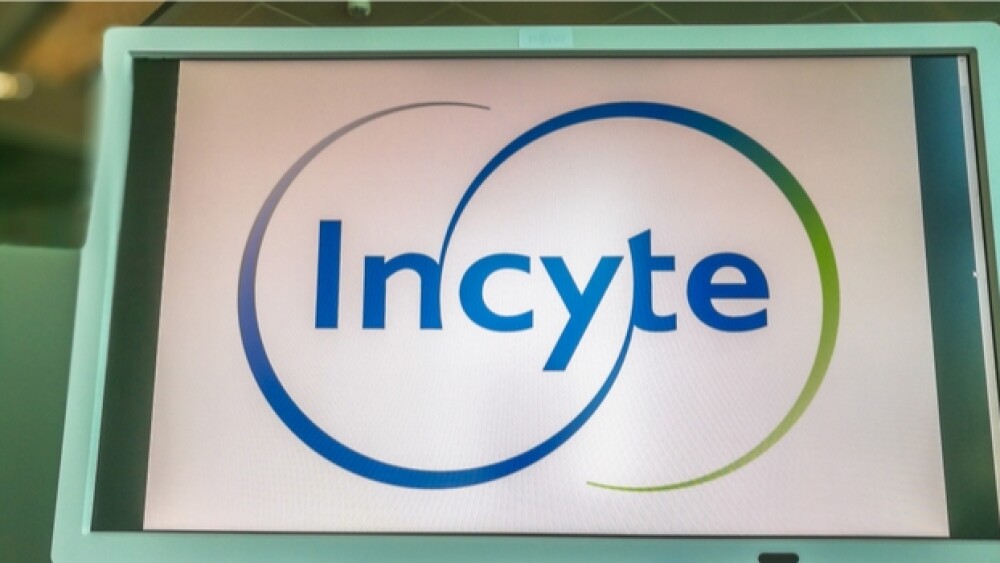Incyte Corporation’s Phase III LIMBER-304 clinical trial has come to an end following a third-party investigation that forecasted poor results.
Photo of Incyte logo/Eyesonmilan via Getty Images
Incyte Corporation’s Phase III LIMBER-304 clinical trial has come to an end following a third-party investigation that forecasted poor results, according to a company update released Friday.
LIMBER-304 evaluated the efficacy and safety of parsaclisib and Jakafi (ruxolitinib) in myelofibrosis patients who had poor responses to ruxolitinib monotherapy. An independent data monitoring committee’s interim analysis reported the study would not likely reach its goal of successfully treating adult patients.
Following the committee’s recommendation, Incyte announced it would suspend its trial.
Phase II data from December 2022 showed that adding parsaclisib to Jakafi successfully reduced spleen volume and improved symptoms in myelofibrosis patients.
Researchers compared results with a placebo plus Jakafi in patients. Their primary goal was to observe a targeted reduction in spleen volume in patients using magnetic resonance imaging or computed tomography.
Incyte stated that this study hasn’t ended for safety reasons and the company will continue reviewing the data. Incyte will collaborate with investigators to conclude the study with the best interest of each patient at the forefront.
Incyte previously discontinued clinical developments with parsaclisib when it withdrew a New Drug Application for the candidate as a treatment for lymphoma in 2022. However, this decision was an alleged business decision and not due to efficacy or safety concerns.
The Delaware-based biopharma creates therapies for patients with myeloproliferative neoplasms and graft-versus-host diseases. This trial was part of a larger clinical trial program called LIMBER that studies multiple monotherapy and combination strategies to better and expand treatment for patients with MPNs and GVHDs.
Other efforts in this program include ruxolitinib-based combinations with BET and ALK2, novel therapeutic options including axatilimab and new targets like mutant CALR.





